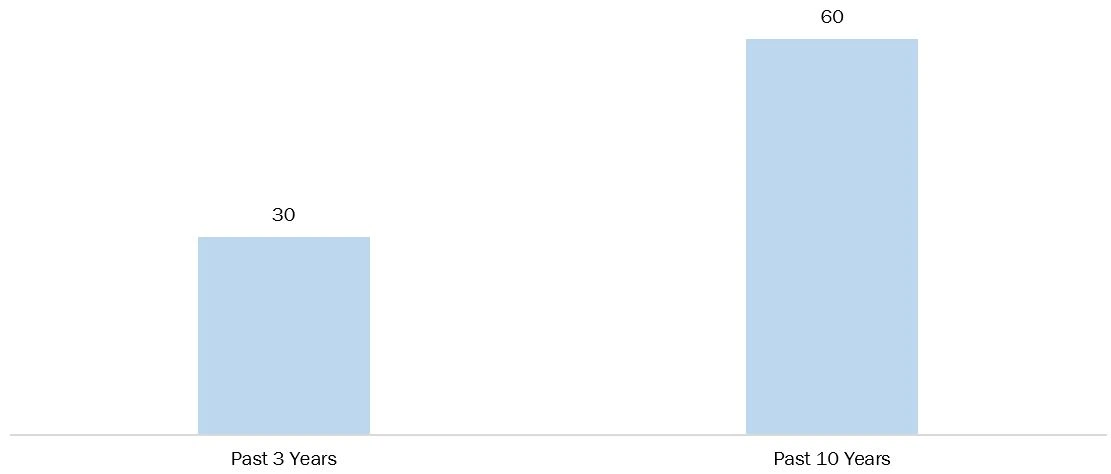Transforming Patient Care: The Power of AI in Predictive Healthcare Analytics

The landscape of healthcare has reached new heights thanks to the integration of Artificial Intelligence (AI), where the conception, diagnosis, and therapy of diseases have completely changed. The most important aspect of this transformation is AI-based predictive healthcare analytics. With the help of AI-enabled analytics, many healthcare providers can forecast and manage potential health risks through extensive use of data, ranging from genomics and epidemiology to wearable devices and electronic medical records. Predictive and preventive healthcare directed at health maintenance and promotion plays a central role while reactive or curative healthcare which uses treatments after symptoms have manifested is minimal.
Further, the traditional healthcare models, which are exclusively dependent on human analysis and retrospective decision-making, are overwhelmed by the ever-increasing sophistication and amount of patient data. If properly utilized, AI presents a remedy by identifying and analyzing relationships between variables, including correlations, patterns and trends, that would typically be missed, thus generating insights that enhance population, precision health and effective service delivery.
Additionally, the last ten years have seen a sharp increase in healthcare investments in artificial intelligence, especially in the last few years. According to a recent report from the venture capital firm Flare Capital Partners, investors have poured over $30 billion into healthcare AI startups in the last three years and about $60 billion in the last ten.
Figure 1: Investment in Health AI Startups, in USD Billions, United States
 Source: American Healthcare Association
Source: American Healthcare Association
 Source: American Healthcare Association
Source: American Healthcare Association
Role of AI in Predictive Healthcare
AI in predictive healthcare analytics relies on advanced tools such as neural networks, machine learning, and natural language processing, among others; to source, process and analyze a multitude of both structured and unstructured data with the primary aim of drawing insights from them But AI goes further by detecting and finding associations in data that for instance all such data including genetic information, wearables, or even electronic health records would be impossible for a human being to break down. Providers understand these insights and make an effort to enhance patient outcomes through proactive interventions by allowing data to inform their decision-making. There are models within AI, which can predict the likelihood of hospital re-admissions, progression of chronic conditions as well as infectious disease prevalence and even outbreaks.- Strengthening Prevention and Early Diagnosis
- Individualized Medical Attention
- Optimizing Medical Resources
- Enhancing the Health of the Population
Difficulties and Moral Aspects
There is a bright side to predictive healthcare analytics but there are also issues that need to be solved in the process of incorporating AI in the system. Since patient details are very extensive, there is a need to protect and assure the privacy of records. Therefore, all these necessitate compliance with statutes, statutes or regulations found in HIPAA and GDPR. There are also risks associated with erroneous predictions due to the biases in the algorithms from biased or incomplete data sets that tend to differ from the already disadvantaged minorities. Such concerns necessitate the application of adequate evaluation processes and the usage of explainable AI methods. Future The seamless integration of artificial intelligence in all areas of patient management is crucial for the progress of medical services. As the processing capabilities, data harvesting, and artificial intelligence techniques improve, predictive healthcare analytics will become more accurate, accessible, and inexpensive. If such an evolution is possible, then newer technology such as federated learning and quantum computing will help make this possible while ensuring data integrity and protection. In conclusion, predictive healthcare analytics powered by artificial intelligence is a disruptive innovation in the provision of healthcare services and is poised to revolutionize how treatment is provided to patients. It addresses challenges that have dogged the healthcare system for a long time through timely diagnosis, personalized medicine, and efficient utilization of resources. The technology will not only improve health systems but will also change the course of patients’ health towards the world as it advances and ethical concerns are addressed. Find some of our related studies:Get in Touch
Interested in this topic? Contact our analysts for more details.
Latest Blogs

Solar Control Window Films Market expected to reach USD 1,224.951 million by 2030
RecentlyTop Companies Leading the Silicon-Based Capacitor Revolution
Recently
The Role of Chemical Blowing Agents in Sustainable Foaming Solutions
Recently
Top 10 Emerging Beverages Set to Dominate the Market in the Coming Years
Recently